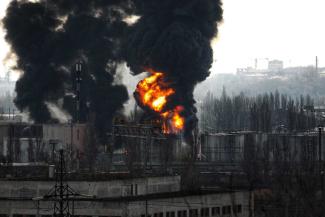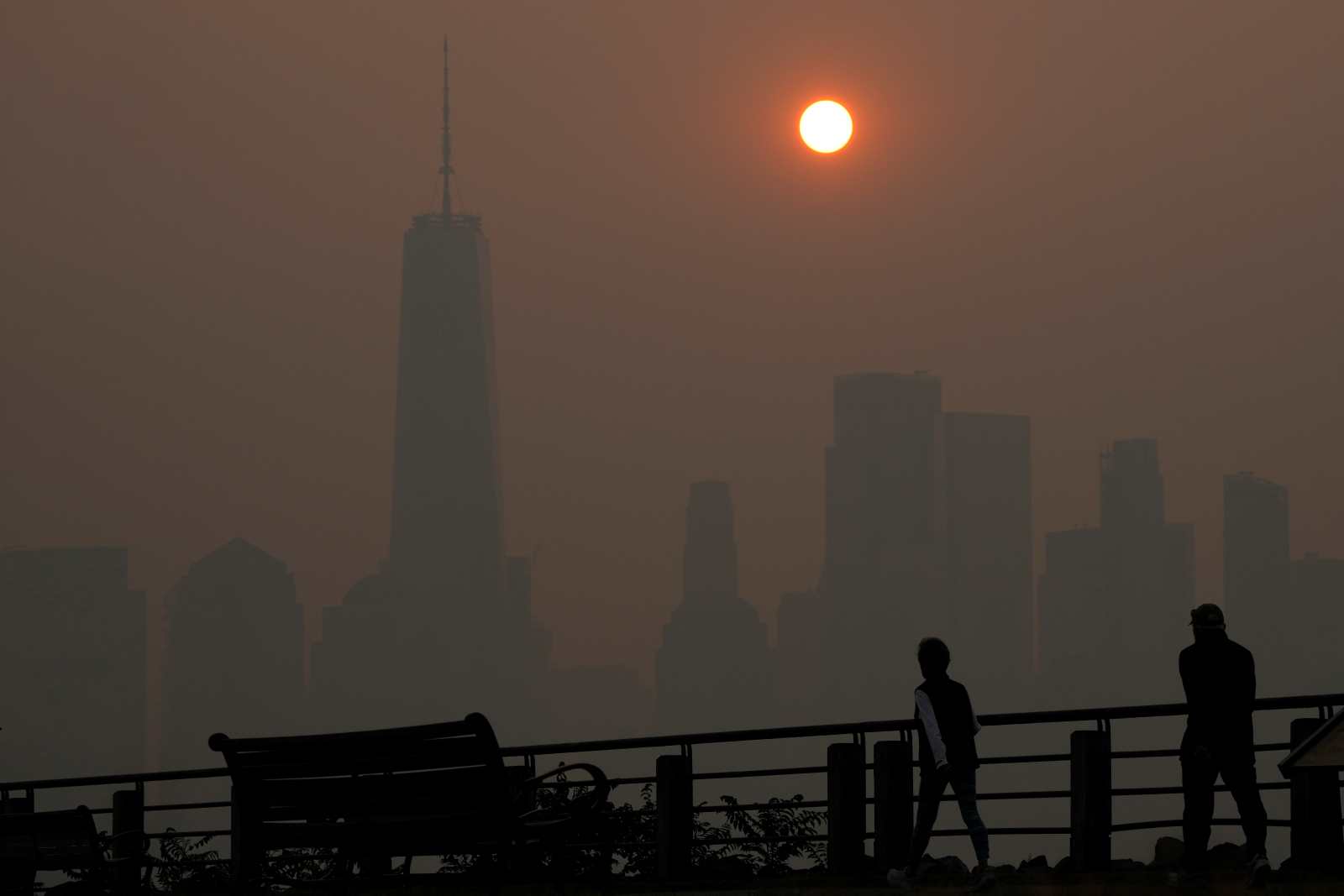Ukraine
The war in Ukraine is fuelling the climate crisis

A recent study by the Initiative on GHG Accounting of War provides information on the climate impact of the war in Ukraine. The research was supported by Ukraine’s Ministry of Environmental Protection and Natural Resources. Lennard de Klerk and his team investigated the greenhouse gas emissions that were released during the first year of the war.
First of all, they took into account emissions caused by direct fighting and the resulting fires. Second, military vehicles require large quantities of fuel, and troops and equipment are transported long distances to the fronts. Consequently, the team also included the greenhouse gases emitted during the run-up to the war. Third, the post-war period will also affect the war’s climate impact. When peace is restored, destroyed buildings will have to be reconstructed. Building is energy-intensive, however, and generates high emissions.
CO2 emissions comparable to Belgium’s
Based on their data, de Klerk and his team estimate the CO2 emissions of 12 months of war at about 120 million tonnes:
- Direct fighting and military transport caused 21.9 million tonnes of greenhouse gas emissions.
- Fires released 17.7 million tonnes of CO2 into the atmosphere.
- Emissions totalling 2.7 million tonnes were generated by the migration of refugees.
- The closure of airspaces led to flight diversions with an additional 12 million tonnes of emissions.
- The reconstruction of housing and infrastructure will be particularly climate-intensive, emitting an estimated 50.2 million tonnes.
- The sabotage of the Nord Stream gas pipeline, the largest one-time event, was registered as releasing 14.6 million tonnes of CO2.
According to the study, the entire volume corresponds to the annual CO2 emissions of Belgium. Thus, the war is damaging the climate to the same degree as the everyday life of a medium-sized industrialised European country.
More destruction in the beginning
The experts maintain that the first six months of the war were particularly damaging to the climate. Direct emissions from weapons and military transport remained constant over the year, according to the study, but there were fewer fires during the cold winter months. At the beginning of the war, the fronts also shifted more often. The resulting destruction generated immense volumes of greenhouse gases, the team of experts explains.
The CO2 impact could be lessened, however, if the international community generously supported reconstruction in order to promote climate-friendly building methods. The authors point out that the Paris Agreement contains financing models for such cases.
Medium-term impacts of the war could even strengthen climate protection in Europe. According to the study, it will shape energy policy. Members of the EU aim to be less dependent on Russian gas imports. As a result, the authors believe that natural gas will lose its status as a bridge technology. At the same time, the development of renewable resources will be expedited.
Climate protection and security
For the Ukrainian energy minister German Galushchenko, climate protection and security interests go hand in hand. He claims that between October 2022 and May 2023, Russia attacked Ukraine’s energy grid over 270 times, forcing Ukraine to accelerate the development of renewable energy. Galushchenko emphasises that this would allow electricity to be produced decentralised, which would make the energy system less vulnerable to attacks.
Prior to the outbreak of the war, Ukraine had published ambitious climate plans. The country had promised to reducing its greenhouse gas emissions by 65 % by 2030 compared to the reference year 1990.
But before Ukraine can invest in green energy, stability must be restored, stresses the report by the Initiative on GHG Accounting of War. Until that happens, the country will be forced to keep focusing its economy on the military.
Sustainable peace could take a long time to achieve, however – and in the meantime, the climate crisis will continue to get worse.
Mustafa Shrestha is studying online journalism at the University of Applied Sciences in Darmstadt, Germany. He contributed this article as part of his internship at D+C/E+Z.
euz.editor@dandc.eu














